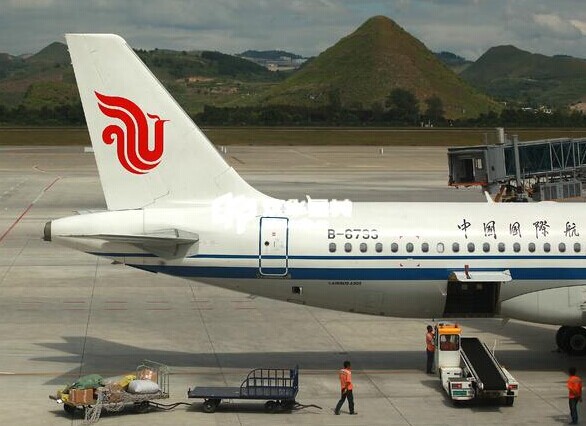| « Wanda invests in premier LA site | Internet vital to China's economic transformation » |
Pilot pay at flag carrier to soar by 360m yuan

An Air China airliner arrives at Guiyang's international airport in Guizhou Province. The flag carrier of China will spend 360 million yuan to raise its pilots' compensation. The move is expected to benefit 4,560 pilots at its five subsidiaries.
Air China raising salaries following protests by captains over long hours
Air China Ltd, the flag carrier of China, will spend 360 million yuan ($58.06 million) to raise each of its pilots' income by 80,000 yuan annually on average, which will benefit 4,560 pilots at its five subsidiaries.
The pay-raise plan is under discussion and still awaiting approval, an insider told China Daily.
In order to reward core employees, captains and instructors will get 18 percent more annual income on average, which will be around 174,000 yuan per person, said the plan. Usually, pilots' income is combined with a basic salary and floating wage, called an hourly fee and calculated by their flight hours.
Air China will increase the percentage of the floating wage, and the hourly fees of flight instructors will go from 409 yuan to 549 yuan, according to the plan.
"We are basically satisfied with the plan, although the increase is not very large," said a captain from Air China, who declined to be identified.
Air China had no official comment on the plan yet, said Ding Yue, a spokesman for the airline. An internal Air China document said that the company planned to spend 360 million yuan on pilots' pay raises.
The carrier's financial report showed that its net income was 3.319 billion yuan in 2013. The airline also forecast that its net profit would drop by 55 to 65 percent in the first half of 2014 compared with the same period in 2013.
But even with the raises, Air China pilots still will make less than pilots of other airlines, some business insiders said. Pilots' salaries at Air China are lower than other carriers in China, "especially compared with privately owned airlines", said Zhang Qihuai, vice-president of aviation law research for the China Law Society.
Zhang said as the flag carrier and State-owned carrier, Air China attracts pilots for its resource advantages.
But the rising privately owned and local airlines, which pay much higher salaries, are threatening the State-owned carrier's superiority, he said. "To raise salaries for pilots is a huge advance for Air China, but it is still low for the industry," Zhang said.
The plan was floated following the signing of a public letter by hundreds of Air China pilots in April. They complained of such things as long hours and unequal treatment of Chinese and foreign pilots.
"The company provides more benefits to Chinese pilots, such as medical treatment and pensions, which the foreign pilots have to foot themselves," Air China said, explaining why the carrier pays foreign pilots a higher salary. It did not address the issue of the hours.
"Money is not everything for the pilots, who are already a high-income group, and they want more labor rights," Zhang said.
During the peak season, some pilots work close to 100 hours per month, which is the authority's upper limit, said a captain from a domestic airline. The reason is a lack of pilots in China, Zhang added.
At the end of 2013, 35,505 pilots were licensed to fly in China, while the number of civilian aircraft totaled 2,145, according to the Civil Aviation Administration of China.
Boeing Co forecast in 2013 that China would need to add 77,000 new pilots during the next 20 years.